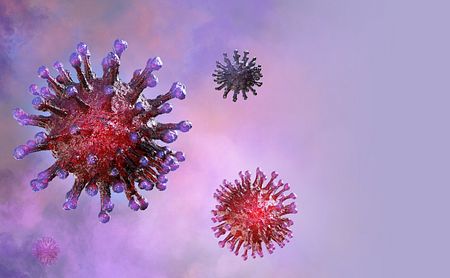COVID-19 Vaccine Response Can Be Affected by Certain Medications
Written by |

Most patients with Sjögren’s syndrome and other rheumatic diseases develop antiviral antibodies after their first COVID-19 vaccine shot, but their treatment affects the chances of them developing antibodies, a recent study has found.
In particular, an antibody response was significantly less likely in patients receiving mycophenolate or rituximab, and appears to be higher among those receiving anti-tumour necrosis factor (TNF) inhibitors.
The analysis was conducted in patients who received the Moderna and Pfizer-BioNTech vaccines, the two currently available vaccines that deliver a piece of mRNA to patients instead of an attenuated virus.
The study, “Antibody response to a single dose of SARS-CoV-2 mRNA vaccine in patients with rheumatic and musculoskeletal diseases,” was published in Annals of the Rheumatic Diseases.
While the efficacy of the two COVID-19 vaccines has been established at more than 90%, responses are not well-defined in patients with rheumatic and musculoskeletal diseases, such as Sjögren’s syndrome, rheumatoid arthritis, or lupus, many of whom take medications that dampen immune responses.
To better understand how well these vaccines work in such patients, researchers at Johns Hopkins University investigated the development of anti-SARS-CoV-2 antibodies in patients who received their first vaccine dose and had no confirmed COVID-19 diagnosis. SARS-CoV-2 is the virus that causes COVID-19.
A total of 123 participants, who received their first shot between January and February, were recruited across the U.S. via social media. Most of them were female (95%), the median age was 50 years, 52% received the Pfizer-BioNTech vaccine, and the remaining got the Moderna vaccine.
Overall, 28% of the participants had inflammatory arthritis, 20% had systemic lupus erythematosus, 13% had Sjögren’s, and 29% had overlapping diseases.
A majority of patients (72%) were receiving some kind of immunosuppressive treatment, which included non-biologic disease-modifying antirheumatic drugs (DMARDs, 19%), biologic DMARDs (14%), or a combination (37%).
After a median of 22 days following the first vaccine dose, about three in four patients (78%) had detectable antibodies against the virus. A larger proportion of younger patients had antibody responses, but the difference did not reached statistical significance.
Compared with the overall population, a significantly lower proportion of patients taking the non-biologic DMARD mycophenolate (28%) or the biological treatment Rituxan (33%) had detectable antibodies. By contrast, nearly all patients (94%) taking TNF inhibitors developed antibodies.
“The majority of participants developed detectable [anti-SARS-CoV-2] antibodies,” the researchers wrote. For patients with rheumatic diseases who are hesitant to get the COVID-19 vaccine, “this report can provide reassurance to patients and their providers,” they added.
The study was limited by its small size, overrepresentation of female participants, lack of information about treatment dosage or timing, and the use of antibody testing designed to detect antibody response after natural SARS-CoV-2 infection rather than vaccination.





